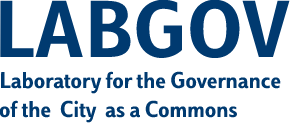*Can we nudge in the European Green Deal?

di Francesco Giorgino
by Diletta Dormi
ABSTRACT
The article wants to highlight how green nudges, together with other forms of regulation, can help and support the achievement of sustainable goals set by the European Commission, in particular the ones indicated in the European Green Deal plan. The main objectives of this ambitious plan to reach climate neutrality within 2050 are: move to a circular economy system, where the waste of resources is reduced to the minimum, decrease pollution and encourage biodiversity through its restoration.

The last sixty years have been characterized by new scientific studies and theories on human behavior. The most prominent ones are the so-called behavioral sciences, based on the analysis of individuals’ thinking and acting. A branch of behavioral sciences is cognitive science, which studies mental processes, intelligence, and behaviors through an interdisciplinary approach borrow from psychology, neuroscience, anthropology, and other fields. Through these revolutionary discoveries, we have been able to investigate human decision processes, to learn why people react in a certain way to specific stimulations; therefore we started to predict some attitudes and reactions. Originated from these studies and theories that appeared for the first time at the beginning of the 18th century, researchers started to talk about specific nudges as instruments that lead to the improvement of people’s behaviors, and consequently produce a positive impact on the quality of their life and the surrounding environment.
Particularly, the pioneers of the nudge regulation theory are two American professors, R. Thaler and C. Sunstein who explain what are the positive effects of the soft paternalism applied to states’ administration. In their major book “Nudge. Improving decisions about health, wealth and happiness”, they discuss how in several fields such as insurance, environment, and others, substitute nudges to obligations, can lead to a better administration and more freedom of choice for citizens. Soft paternalism can encourage to deal with climate issues in a more responsible way and this incentive approach could produce important benefits towards a sustainable economy as promoted by the European Union. The use of this environmental policy instrument, alongside other regulatory tools within the climate law plan decided by the EU, can definitely educate and help citizens to reduce pollution, be careful of the use of resources and encourage a more attentive behavior. This kind of regulation goes beyond the so-called “greenwashing” that in many cases is not effective in motivating strong behavioral changes; the effectiveness of the methods professed by this soft regulation is based on behavioral analysis, therefore everything will be tailored on humans way of thinking and acting.
One of the many examples of how to concretely apply this regulation to address environmental issues at a state level can be found in a city center park in Bucharest, Romania. For instance, to address the issue of cigarette butts being thrown on the ground, a special bin is located at the entrance of the park, prompting citizens to dispose of the cigarette butts in the bin; as by doing so, they are indicating their preferred football team. In this context, being able to support their preferred team represent a strong driver which nudge citizens to respect the park and, in general, the environment they are living in. The example shows how simple green nudges can be stronger than the obligation to throw cigarette butts in a simple bin, and how behavioral studies are so important to be considered and included in regulations to maximize the results we want to obtain.
Other relevant examples are related to recycling in public and private places: studies and conducted experiments based on people’s behavior demonstrates that the difficulty of recycling can be sometimes connected to lack of knowledge, ability to correctly separate materials and structural barriers, therefore apply nudges to raise awareness and people’s attention is crucial. Why not make it more captivating as well? An experiment conducted in Norway in 2014, on approximately nine thousand households was based on sending letters with personalized information related to their own recycling rates and waste habits, and their rates compared to the neighborhood. This trial showed a clear result: how powerful this simple letter can be to make some individuals reduce, without any obligation, their waste and increase the recycling.

Another kind of application of green nudges is the “default option or choice” which consists of choosing between two or more alternatives, knowing that the default one is the suggested one by the provider. Counting on the fact that people are less motivated to change the default option because it will probably imply more efforts requested on their part, they will simply choose it. It can be interesting to organize relevant options in this way letting anyway citizens free at any step to decide or change how they prefer.
In conclusion, nowadays we can find many of these examples of soft nudges in European cities, which is clearly an evidence of their effectiveness. To include policies based on these gentle nudges within a regulatory framework such as the one of the European green deal, will make more effective the achievement of the objectives that European states have set.
Sources:
https://ec.europa.eu/info/strategy/priorities-2019-2024/european-green-deal_en
R. Thaler, C. Sunstein, Nudge: Improving Decisions About Health, Wealth, and Happiness, Milan, 2009, p. 21
F. Carlsson, C. Gravert, O. Johansson-Stenman, V. Kurz, Nudging as an Environmental Policy Instrument, 2019, p. 1
A. Moratti, Tecniche di nudging in ambito ambientale, Collana “Quaderni dell’Osservatorio” n. 34, Fondazione Cariplo, 2020, p. 24
A. B. Milford, A. Øvrum, H. Helgesen, Nudges to increase recycling and reduce waste, Norwegian Agricultural Economics Research Institute, 2015

